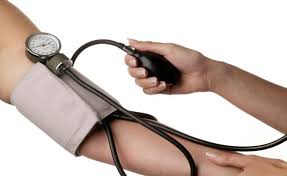For most people, a normal blood pressure reading is around 120/80mm Hg. Anything below 90/60mm Hg is considered low, and might be a concern. Low blood pressure is usually expected among patients after surgery. Blood pressure can drop during or after surgery for a wide variety of reasons, and in most cases, it's a temporary issue that won't cause any problems. However, it requires very close monitoring, because extended or very low blood pressure can lead to lower oxygen supply which can lead to heart and brain problems.

What Causes Low Blood Pressure After Surgery?
Most patients who undergo surgery will face lowering of blood pressure. This is often caused by a loss of blood or the prolonged effects of anesthesia. It might also be caused by an allergic reaction, dehydration, heart problems, and even infection in the body. The four most common causes are shown below.
1. Hypovolemic Shock
This occurs when there isn't enough blood volume in the body. One of the most common causes is a hemorrhage, where blood spills out of the veins. When there is a hypovolemic shock, the blood pressure drops, the pulse rate goes up and the urine output decreases.
2. Cardiogenic Shock
This happens when the heart can't contract and pump blood effectively. Cardiogenic shock is usually caused by myocardial infarction or heart attack. Up to ten percent of patients who suffer a heart attack will also suffer this cardiogenic shock; 40 to 70 percent of those will die.
3. Septic Shock
When the body is overwhelmed by an infection, the arteries dilate, and there isn't enough blood to keep up the strong pressure. As a result, blood pressure drops, sometimes dramatically. The patient will also have fever and a fast heart rate.
4. Anesthesia
The drugs that are required to put you to sleep for surgery can play havoc with low blood pressure. It happens during the surgery, as well as after. Doctors always monitor each patient very closely throughout the procedure and recovery to ensure that low blood pressure will be quickly detected and treated.
How to Manage Post-Surgery Low Blood Pressure
Low blood pressure after surgery usually requires careful monitoring and some treatments. These following tips are recommended to combat post-surgery low blood pressure.
- Stand up and move slowly. The blood needs time to get flowing through your body, and low blood pressure can easily lead to fainting spells.
- Never have caffeine and alcohol. They can dehydrate you, and lower your blood pressure even more.
- Eat small meals. Eating can sometimes lead to lower blood pressure, so eating smaller meals more often can help reduce the risk.
- Stay hydrated.Drink plenty of fluids and water is usually best.
- Add salt to your diet. Your doctor might even prescribe salt tablets. However, this is only done under careful supervision by a physician.
- Wear support stockings. They can put pressureon your tummy, legs and feet, which can boost blood circulation and then increase blood pressure.
- Take medications as prescribed to treat low blood pressure. Phenylephrine is often used to increase blood pressure.
When to See a Doctor
Low blood pressure after surgery is common and usually resolves on its own. However, if you are experiencing dizziness, dehydration, nausea, vision changes, lightheadedness, fainting spells or cold, clammy skin, it's time to call the doctor.
Other People's Experiences
Understanding other people's experience of post-surgery low blood pressure can help you understand what to expect.
It's been eleven days since my abdominal surgery, and at night I was feeling incredibly lightheaded and almost passed out. Today at the doctor's office, my blood pressure was at shocking 98/50. They told me to be careful when I move around, and asked that I have someone with me at all times. It's a little scary.
I felt lightheaded and almost passed out when trying to stand up from sitting or lying. Then I tested my blood pressure at the pharmacy and it turned out my blood pressure was 100/68. Later at my doctor's office, my blood pressure was only 90/60. He said it was not too bad, but told me to increase my sodium intake.
I had surgery for fibroids two weeks ago, and my recovery went well. However, I am worried about my low blood pressure after surgery. My blood pressure reading now is 110/50, but my normal reading was 120/80. The doctor said that was actually to be expected and soon it would come back up.
